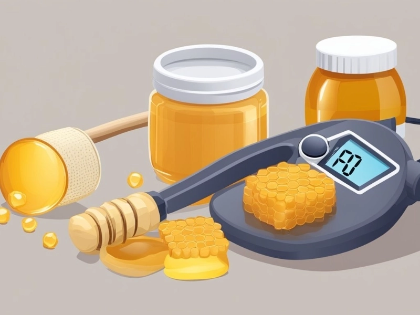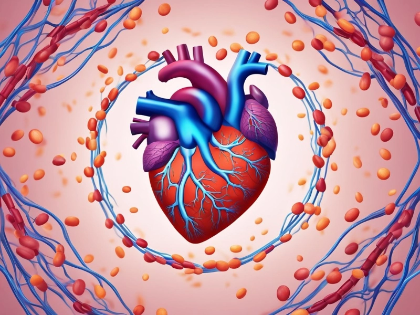Boosting Immune Function in the Elderly with Vitamin D
1. The Value of Immune System in Senior Citizen People's immune systems naturally get less effective as they age, which increases their vulnerability to infections and diseases. For the elderly, this drop in immunological capacity can cause more morbidity and death. Maintaining health and well-being in elderly persons depends on the immune response being strengthened. Good nutrition—especially the consumption of important vitamins like vitamin D—is one of the best strategies to support immune system.
2. Realising D vitamin for vitamin Essential for several body processes including bone health, calcium absorption, and immunological modulation, vitamin D is a fat-soluble vitamin. Among vitamins, it is unusual since the body can generate it in response to sunshine. But many older people have restricted sun exposure from changes in their lifestyle or mobility problems, which increases their risk of vitamin D deficiency. Their immunological response and general health may be seriously compromised by this shortfall.

 5. Vitamin D Supplementation's Advantages For the aged, augmenting with vitamin D has demonstrated many advantages. Studies show that enough vitamin D can lower respiratory infection risk, increase muscle strength, and boost general immune response. Vitamin D can help lower the frequency of diseases such influenza and pneumonia, which can have major effects on elderly persons by enhancing immune system. This makes vitamin D supplements a great way to support longevity and general wellness.
6. Examining Vitamin D Levels One should first evaluate their vitamin D levels before starting vitamin D supplements. One can find whether a person is deficient, insufficient, or has enough levels of a vitamin using a basic blood test. The findings let medical experts suggest suitable dietary adjustments or supplements. Frequent monitoring also supports continuous immunological health by helping to guarantee that vitamin D levels stay within the ideal range.
5. Vitamin D Supplementation's Advantages For the aged, augmenting with vitamin D has demonstrated many advantages. Studies show that enough vitamin D can lower respiratory infection risk, increase muscle strength, and boost general immune response. Vitamin D can help lower the frequency of diseases such influenza and pneumonia, which can have major effects on elderly persons by enhancing immune system. This makes vitamin D supplements a great way to support longevity and general wellness.
6. Examining Vitamin D Levels One should first evaluate their vitamin D levels before starting vitamin D supplements. One can find whether a person is deficient, insufficient, or has enough levels of a vitamin using a basic blood test. The findings let medical experts suggest suitable dietary adjustments or supplements. Frequent monitoring also supports continuous immunological health by helping to guarantee that vitamin D levels stay within the ideal range.
 7. Lifestyle elements affecting vitamin D absorption The absorption and metabolism of vitamin D in the elderly can be influenced by several elements of lifestyle. For example, since vitamin D is retained in adipose tissue instead of flowing through the bloodstream, obesity can reduce bioavailability of that vitamin. Some drugs also might affect the way vitamin D is metabolised. Promoting a good lifestyle with frequent physical exercise and a balanced diet will help absorb vitamin D better and boost general immune system.
7. Lifestyle elements affecting vitamin D absorption The absorption and metabolism of vitamin D in the elderly can be influenced by several elements of lifestyle. For example, since vitamin D is retained in adipose tissue instead of flowing through the bloodstream, obesity can reduce bioavailability of that vitamin. Some drugs also might affect the way vitamin D is metabolised. Promoting a good lifestyle with frequent physical exercise and a balanced diet will help absorb vitamin D better and boost general immune system.
 8. Sunlight Exposure: Their Function Although supplements and dietary sources are crucial, sunshine exposure is still the natural approach to increase vitamin D levels. Spending time outside might be good for senior citizens even in little increments. Walking in the yard or lounging on a terrace can supply the required sunlight for synthesis of vitamin D. To lower the risk of skin damage and cancer, it is imperative to strike a balance between sun exposure and skin protection nevertheless.
9. Synopsis of the Effect of Vitamin D on Immune System In the aged, vitamin D is very important for enhancing immune system and preventing infections and disorders. Older persons especially need it since it can boost immunity and control inflammation. Older people can greatly boost their immune system by making sure they get enough vitamin D via food, supplements, and safe sunlight. Better health results and a better quality of living in later years can follow from this proactive strategy.
8. Sunlight Exposure: Their Function Although supplements and dietary sources are crucial, sunshine exposure is still the natural approach to increase vitamin D levels. Spending time outside might be good for senior citizens even in little increments. Walking in the yard or lounging on a terrace can supply the required sunlight for synthesis of vitamin D. To lower the risk of skin damage and cancer, it is imperative to strike a balance between sun exposure and skin protection nevertheless.
9. Synopsis of the Effect of Vitamin D on Immune System In the aged, vitamin D is very important for enhancing immune system and preventing infections and disorders. Older persons especially need it since it can boost immunity and control inflammation. Older people can greatly boost their immune system by making sure they get enough vitamin D via food, supplements, and safe sunlight. Better health results and a better quality of living in later years can follow from this proactive strategy.







